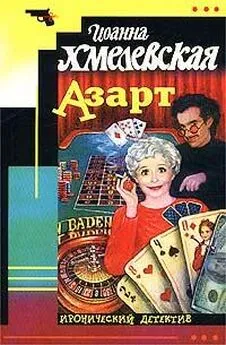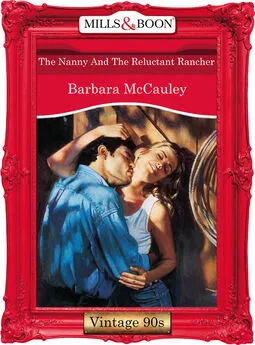Barbara Hambly - Dead water
- Название:Dead water
- Автор:
- Жанр:
- Издательство:неизвестно
- Год:неизвестен
- ISBN:нет данных
- Рейтинг:
- Избранное:Добавить в избранное
-
Отзывы:
-
Ваша оценка:
Barbara Hambly - Dead water краткое содержание
Dead water - читать онлайн бесплатно полную версию (весь текст целиком)
Интервал:
Закладка:
At the stern end he found Rose. She was talking with Julie, so he couldn't very well catch her up in his arms and kiss her, as he wished to do, or say, You, my nightingale, are a genius. . . .
“Mrs. Fischer returned about half an hour ago with Mr. Weems,” Rose said, turning to meet his smile. “So I suppose poor Sophie's going to be occupied for the rest of the evening. Mrs. Fischer seemed to be in a frightful mood when she called to Sophie, probably because she realized the boat wasn't going to be able to proceed until nearly dark.”
“I never figured why white folks always got their hair on fire to get somewhere quick,” sighed Julie, squinting in the sharp, hot sunlight as Molloy stormed out of the engine-room's rear door and up the stairs to the boiler-deck. “What's it matter if we stays here another few hours? What's so all-fired important in Vicksburg, or Memphis, that it can't wait? The boiler really gonna blow up if they runs the boat too fast?”
She looked scared, and trying to conceal it. She wasn't even, January guessed, as old as Bobby, and the recollection of Bobby stabbed him with guilt again, that he'd left the boy his own choice about escape.
Even if making your own choice was what freedom was about.
“Most accidents on steamboats are because the pilot gets careless,” Rose soothed. “I think whatever else can be said of him, Mr. Molloy is a good pilot, and not likely to take foolish risks.”
“Then how come they think they got to check all the boilers?” asked Julie. “They wouldn't be check 'em if there wasn't somethin' wrong.”
“I can't imagine,” said Rose with a sidelong glance at January. Eli, the cook, on his way back into the galley, overheard and paused long enough to shoot back.
“Hey, Julie, these is white folks we're talkin' about.”
And all three of them laughed.
“Shit,” sighed Julie. “Here she is.” Across the open mud-flat of the landing, Theodora Skippen appeared out of the mouth of a scummy alley. “God, I hope she ain't drunk again.” As Miss Skippen hurried toward the Silver Moon, her white bonnet-plumes nodding with her step, one of the stevedores said something to her that elicited an obscene gesture, quickly released as she realized there might be respectable ladies on the upper-deck promenades who might see her. She was not, January reflected, particularly bright—or else she'd had enough liquor at the Stump to blunt her animal cunning for survival.
Julie rubbed her ear, which, dark as she was, showed fresh bruising as well as the earlier nail-gash cuts, and went up the rear stair to be in Miss Skippen's stateroom when Miss Skippen returned there. Across the confusion of the wharf, January could see the Reverend Christmas leaning in the mouth of the same alleyway, watching the Silver Moon .
An hour later Mr. Lundy returned, with Hannibal in tow.
“ Quid non mortalia pectora cogis, auri sacra fames, ” sighed Hannibal as he slumped onto the nearest wood-pile next to the galley passway and took a sip of opium. “And now, of course, our precious friends know who we are. At least they know about you and me, Ben. Owl-eyed Athene still wears the hood of invisibility. . . .”
“Which I won't much longer,” retorted Rose, “if I persist in being seen in your company.”
“What, will you join the regiment of women who tell me my friendship does their reputations no good?”
“You don't think La Pécheresse will believe that you were overcome by my charms when we met on the boat?” January drew himself up in mock indignation. “I am cut to the very heart. I wish now I'd stayed a little longer hiding near the Stump, to know whether Miss Skippen escaped from the Reverend Christmas or whether he sent her back here as his spy.”
“You'd only have gotten yourself killed.” Hannibal followed his eyes to where the young lady in question was briefly visible, crossing the landing-stage before being swallowed up in the crowd still milling before the engine-room's bow door. “Christmas doesn't sound like a man whose suspicions take much arousing. I wonder if asking her to my cabin for a few sips of Black Drop would induce in Miss Skippen a confiding mood?”
“It would be likelier to induce a duel with Molloy,” replied January grimly. “He regards the girl as his property. . . .”
“Well, everything she owns apparently is,” remarked Rose uncharitably.
“And I have no desire to spend the next three months in a slave-jail awaiting the arrival of your putative next of kin. Or to see you killed.” January spoke roughly, his anger at the Reverend Christmas, and Ned Gleet, and Miss Skippen breaking through his voice like the black limbs of trees breaking through the river's surface; Hannibal's eyes met his, for a moment reading the affection that underlay the rage.
It was the affection that Hannibal answered a moment later: “Well, I have no desire to see me killed either,” he said, and rose to head for the steps back to the white purlieux of the boat. “And the thing that troubles me now is that, having seen who we are, and failed to have us detained in Natchez: what is La Pécheresse's next attempt going to consist of?”
January's mood was not improved when, later in the day, he saw Ned Gleet return with two slaves gone from his coffle, and two more added, a boy of fifteen or so and a girl so young that January suspected there'd been chicanery about her birth-date. Or maybe the law in Mississippi had never heard of the Louisiana provision that a child not be sold from her parents under the age of ten.
Of course, the law only said “where possible.”
Gleet looked so pleased with himself as he chained them to the wall, rubbing his hands and chuckling, that January had to remind himself who he was and where he was, lest he stride down the promenade and drive the man's teeth through the back of his head with his fist. Even Jubal Cain, walking past, remarked sourly, “You like 'em a little short, don't you, Gleet?”
“You say what you please,” chortled the other dealer, wagging his finger. “I'll get five hundred apiece for 'em in Memphis. . . . What's your name, boy?”
“Ephriam,” whispered the boy.
“It's Joe now,” retorted Gleet. “Damn silly name, Ephriam—you ought to re-name the lot of yours, Cain. That Fulani boy—Herodotus, what kind of name's that for a field-hand?”
“Not my damn business what a nigger's name is,” returned Cain. “'Rodus does just fine. Sometimes you make me damn sick, Gleet.”
He stalked away, stopping at the end of the promenade and standing aside to let Miss Skippen pass in a flurry of pink muslin and blond lace. She hurried up to Gleet; they stood together talking for some time.
The Silver Moon achieved full steam and was poled off the Natchez landing just before sundown, steaming north again into the hot evening light. About an hour later, a rumor went around the galley passway that Miss Skippen had sold her slave Julie to Ned Gleet.

NINE
“He gonna sell me for a field-hand.” Julie pressed her trembling hands over her lips, as if by doing so she could still the fear and grief cracking in her voice. Spray splashed from the paddle, flecking the deck-hands with wet as they moved about stowing ropes and push-poles, the women as they gathered around their friend among the wood-piles. Behind them, Natchez glowed on its high bluff in the evening light, before the gray-green wall of Marengo Bend hid it from view.
“He gonna sell me for a field-hand, an' whoever buys me'll put me with whoever they got needs a wife, to make babies whether I wants 'em or not, or whether I likes him or not.” A sob shook her, and she hugged her arms around her big, firm breasts, but January saw rage as well as fear in her dark eyes.
Rose put an arm around the girl's shoulders but said nothing. January, sitting beside the four women on a crate of dishes labeled THE MYRTLES—VICKSBURG, understood that there was no room for comforting disagreement: Julie was a big girl, African-featured and dark, and without the refined speech and manners of a house servant. Gleet's jeering voice returned to him: What the hell you need a big buck like that for a valet for, anyway? He's got field-hand written all over him .
Remembered, too, more softly: She's a beauty, ain't she?
From here on up the river was cotton country. The plantations starting up on newly-ceded Indian lands needed field-hands far more than they needed half-trained ladies-maids.
“My granny that's a free woman was savin' to buy me free,” Julie continued in a whisper. “But Michie Binoche, he needed money right then, 'cause of his girl gettin' sick. He wouldn't a' sold me, he said, 'cept that I'd be a ladies'-maid, an' he made Mamzelle Theodora swear she wouldn't sell me off, the dirty bitch.”
“Do you know for sure she's done it?” asked Sophie, grasping at straws. Trying to push aside her own fears of what would become of her on the voyage—as well she should, January reflected. Had Mrs. Fischer put her foot down about selling off her maid rather than letting Weems lead his watchers to the trunks in the hold? “Surely she wouldn't rob herself of a maid while she's traveling?”
“She say, ‘Don't be stupid,' when I ask her.” Julie wiped under her nose with the back of her wrist. “An' she slap me when I ask her again. But when she leave the room I look in her bag, an' she got four hundred dollars there she didn't have before.”
“I don't suppose she could have made that in Natchez,” mused Rose. “Not all in one afternoon, anyway.”
And the women laughed—even Sophie, who looked shocked, too—the wry, bitter laughter of those who lace corsets and wash dirty underwear and tidy away stained sheets. Then they tightened their arms around Julie again, and held the girl close among them as the hard-held tears began to flow. “What'm I gonna do?” whispered the girl, her face pressed to Rose's shoulder. “What'm I gonna do ?”
Preparing to climb the steps to assist his “master” in getting ready for supper, January paused, his eyes drawn down the passway to the locked door of the hold. The thought rose in his mind: Queen Régine might help.
Help how? Poison Gleet? That would result only in Julie and the other seven men and women of Gleet's coffle spending several months in a slave-jail in Vicksburg, waiting for letters to make their patient way up and down the river in quest of his next-of-kin.
Help Julie escape? Even this close to shore, among the snags and eddies of low water, the current was strong. Julie could stay afloat on a couple of pieces of furnace-wood, but once ashore, she'd have county patrols to contend with, and almost certainly the Reverend Levi Christmas, dogging the boat like a carrion wolf.
Along the starboard promenade, the men were singing, their voices rolling out across the water:
Ai, tingwaiye, ai tingwaiye. . . .
And from the women's side of the boat, two or three voices at first, then on the next round more, replied, “Ah waiya, ah waiya.”
African words, learned by rote from mothers who'd sung them long ago. Even those who hadn't known them before took them up, drawing comfort from the sound, from the memory of the quarters of their childhood, and the villages on the other side of the ocean, beneath the hot African moon.
Day-zab, day-zab, day koo-noo wi wi,
Day-zab, day-zab, day koo-noo wi wi. . . .
Читать дальшеИнтервал:
Закладка:








